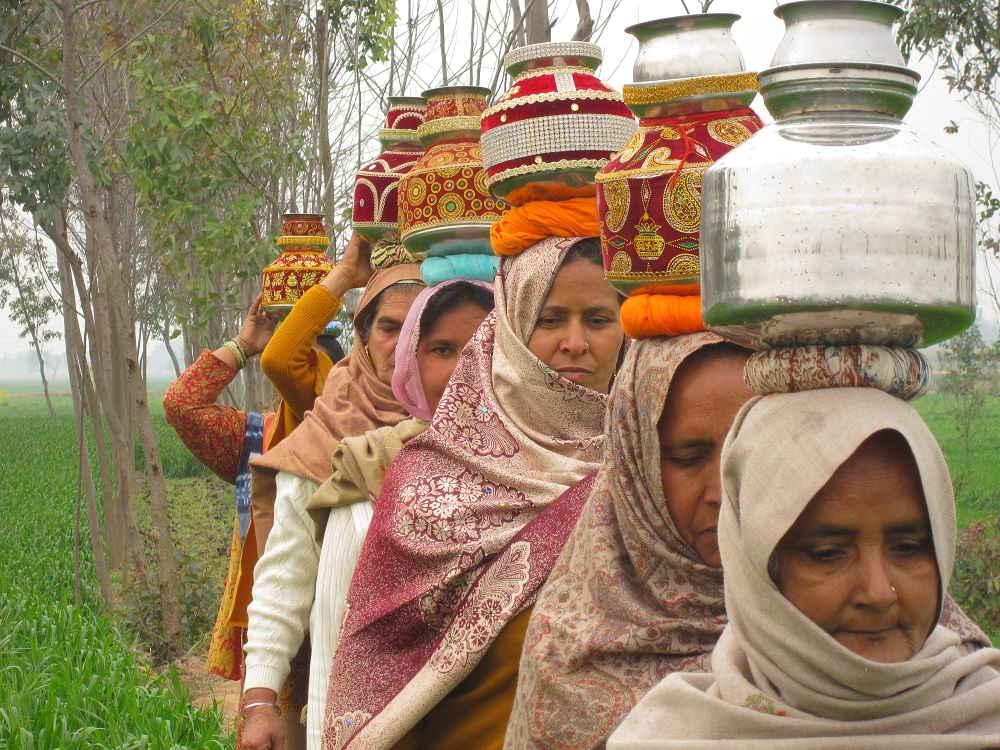Rama Rau is a writer-director. Rau’s debut fiction feature, “Honey Bee,” won the EDA Best Film Award at the Whistler Film Festival. Her film “League of Exotique Dancers” was the Opening Night film at Hot Docs in 2016. Rau’s work has screened in more than 50 international film festivals, and Rau has been profiled as one of Canada’s Top Ten Women Filmmakers, winning awards such as the EDA Best Film Award, the Hot Docs Don Haig Award, the Stuttgart Best Director Award, and the Golden Panda for Best Director.
“The Daughter Tree” premiered at the 2019 Hot Docs Canadian International Documentary Festival on April 27.
W&H: Describe the film for us in your own words.
RR: “The Daughter Tree” is an epic documentary film, six years in the making, about the disappearance of women in India, resulting in all-male populations in some villages.
W&H: What drew you to this story?
RR: Growing up in India, I know how women and girls are treated as lesser beings, but when I heard about the sex determination tests that led to hundreds of thousands of baby girls not being allowed to be born, I decided to make a film about it.
W&H: What do you want people to think about when they are leaving the theater?
RR: I want them to understand that this is not just an issue in India—this is a growing global issue because these problems are faced by populations in both India and China, which make up almost two-thirds of the world’s population. This is going to be as huge as the refugee issue for world leaders.
W&H: What was the biggest challenge in making the film?
RR: Finding characters, getting funded, and figuring out where to start were the problems I faced in the six years of making this film. There were riots in India when we were filming, there were characters who cancelled on us halfway through the shoot, there were story issues—everything that could possibly go wrong went wrong. But the crew and I really believed in this story, so we kept going and finished making the film.
W&H: How did you get your film funded? Share some insights into how you got the film made.
RR: I got development funding from Ontario Creates, the provincial funding body of the Ontario government, and from the National Film Board of Canada. I also received funding from SWR Germany to finish this film, along with funding from the Hot Docs Ted Rogers Fund. I’m very grateful for all of this.
W&H: What inspired you to become a filmmaker?
RR: I wanted to tell stories, and writing stories just didn’t do it for me after a while. I fell in love with the big screen and started dreaming about moving images, and I decided I was going to make films, even if it kills me.
W&H: What’s the best and worst advice you’ve received?
RR: The best advice I’ve received is to continue telling my stories.
The worst advice I’ve received is to use a crane for a shot that I didn’t want to use a crane for. I decided to stay on the ground in the end and used that money for more days on the ground.
W&H: What advice do you have for other female directors?
RR: Tell your own story. Don’t stop telling it no matter what.
W&H: Name your favorite woman-directed film and why.
RR: “Leave No Trace” by Debra Granik. It’s an intimate look into a young girl’s life with her father at the edges of normal life. It shows how women’s stories are unique and told with a different lens than men’s, and just because they are not superhero stories doesn’t mean they are not extraordinary.
W&H: It’s been a little over a year since the reckoning in Hollywood and the global film industry began. What differences have you noticed since the #MeToo and #TimesUp movements launched?
RR: I think the #MeToo and #TimesUp movements have served in bringing attention to the lives and jobs of women in the film industry and brought awareness to the state of gender inequity. More people are talking about this and taking the right steps to correct the imbalance, which is a good thing. Of course, a lot more needs to be done, but we are moving towards a more balanced workplace.







